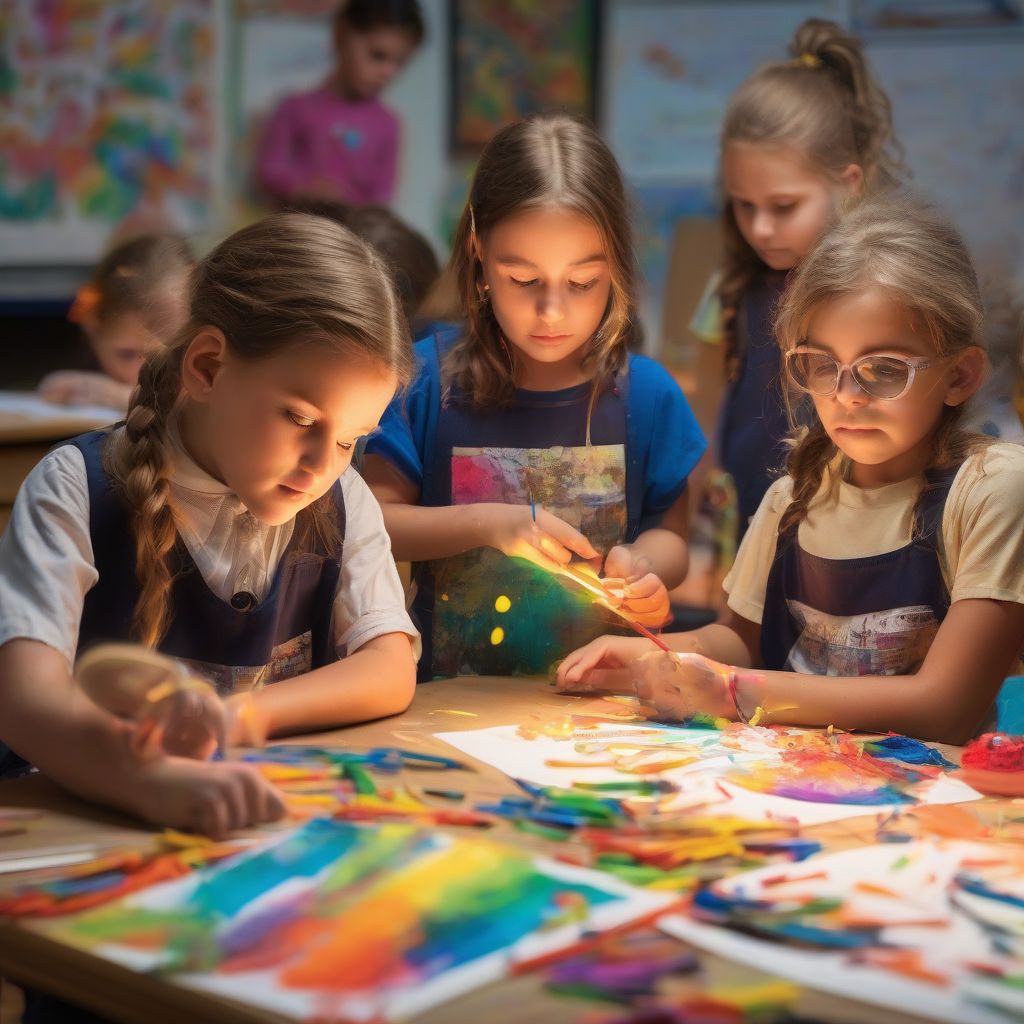“Music gives a soul to the universe, wings to the mind, flight to the imagination and life to everything.” – Plato
Have you ever noticed how a catchy tune can instantly lift your spirits, or how a beautiful painting can evoke a sense of wonder? It’s the magical power of art and music, and their impact extends far beyond mere entertainment. Incorporating arts and music education in school isn’t just about nurturing budding Picassos or Mozarts; it’s about cultivating well-rounded individuals equipped with a unique set of skills for life.
As a nutritionist and meal prepping coach, I often emphasize the importance of nourishing the body and mind for overall well-being. Similarly, arts and music education can be seen as nourishment for the soul, fostering creativity, critical thinking, and emotional intelligence in children that will benefit them throughout their lives.
Unlocking a World of Cognitive Benefits
Let’s delve into the fascinating ways arts and music education can boost brainpower:
1. Enhanced Academic Performance
Numerous studies have revealed a strong correlation between arts education and improved academic performance. Music, for instance, involves understanding patterns, rhythm, and structure, skills that directly translate to mathematical concepts. Similarly, visual arts can sharpen spatial reasoning and problem-solving abilities, benefiting subjects like geometry and science.
2. Sharpened Focus and Concentration
Engaging in creative activities like playing an instrument or painting requires sustained focus and attention to detail. These skills are transferable to other academic subjects, helping children stay engaged and absorb information more effectively.
3. Boosted Memory and Retention
Think back to your favorite song or a captivating piece of art. Chances are, you remember the details vividly. That’s because the arts stimulate multiple areas of the brain, strengthening memory pathways. Music, in particular, has been shown to activate areas associated with memory recall and emotional processing.
 Children Engaged in Art Class
Children Engaged in Art Class
Cultivating Essential Life Skills Through the Arts
Beyond academic benefits, arts and music education play a pivotal role in shaping well-rounded individuals by:
4. Fostering Creativity and Innovation
Art and music are avenues for self-expression and imagination. When children are encouraged to explore different mediums and experiment with ideas, they develop their creative thinking skills, a valuable asset in our rapidly evolving world.
5. Building Confidence and Self-Esteem
There’s nothing quite like the feeling of accomplishment after mastering a challenging piece of music or creating a work of art. Arts education provides opportunities for children to showcase their talents, build confidence, and embrace their unique voices.
6. Enhancing Collaboration and Communication
Many art forms, like orchestra, choir, or theater, involve teamwork and collaboration. Students learn to communicate effectively, listen to others’ ideas, and work together towards a shared goal – essential skills for success in any field.
Nurturing Emotional Intelligence and Empathy
Art and music have a profound ability to evoke emotions and connect us on a deeper level.
7. Developing Emotional Awareness
Art can serve as a powerful outlet for self-expression, allowing children to explore and process their emotions in a healthy way. Similarly, music can tap into a wide range of feelings, helping children develop emotional literacy.
8. Cultivating Empathy and Compassion
By engaging with art forms that portray diverse cultures, perspectives, and experiences, children develop a sense of empathy and understanding for others. Music, too, has the power to transcend language barriers and foster a sense of shared humanity.
The Importance of Early Exposure to Arts and Music
Just like introducing healthy eating habits early on sets the foundation for a lifetime of well-being, early exposure to arts and music is crucial for maximizing their benefits. Research suggests that early childhood is a critical period for brain development, and engaging in artistic activities during these formative years can have a lasting impact.
[amazon bestseller=”art supplies for kids”]
Conclusion: Embracing the Arts for a Brighter Future
In a world increasingly focused on STEM fields, it’s essential to remember the indispensable value of arts and music education. They are not merely “extracurricular activities” but vital components of a well-rounded education, fostering creativity, critical thinking, emotional intelligence, and a lifelong love of learning. Let’s empower our children with the transformative power of the arts, enriching their lives and shaping a brighter future for all.
What are your thoughts on the role of arts and music education in school? Share your perspectives in the comments below! And for more insightful articles on fostering your child’s development, be sure to explore our related content on the importance of early childhood education.
